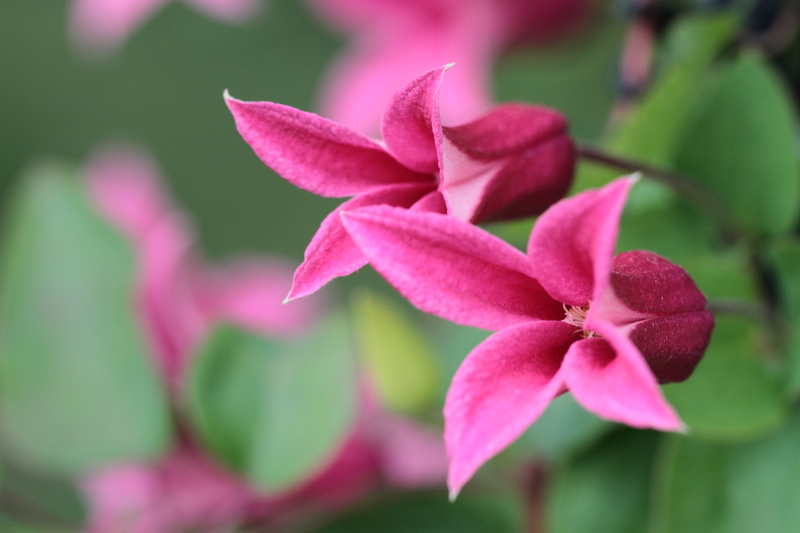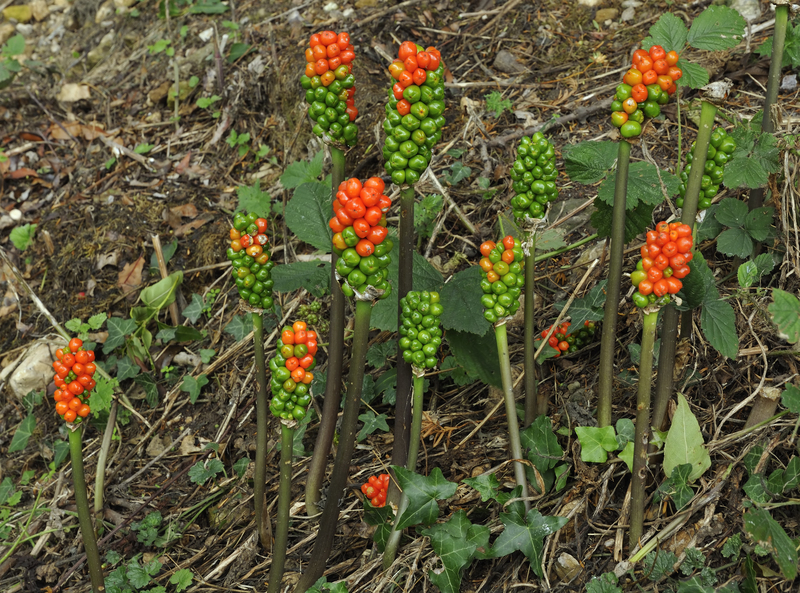Cultivate Success: Beginner's Guide to 9 Essential Gardening Tips
Posted on 24/05/2025
Cultivate Success: Beginner's Guide to 9 Essential Gardening Tips
Are you ready to turn your gardening dreams into lush reality? Whether you're completely new to tending plants or just looking for fresh advice, this beginner's guide walks you through 9 essential gardening tips to cultivate lasting success. From choosing the perfect spot in your yard to nurturing your first blooms or veggies, these steps will help all beginner gardeners set down roots for a thriving, beautiful, and fruitful garden. Let's cultivate that green thumb!
Why Gardening is Worth the Effort
Gardening offers a wealth of benefits: it enhances your outdoor space, promotes a healthy lifestyle, and connects you to nature. Numerous studies show that gardeners experience less stress, more mindfulness, and a joyful sense of accomplishment. Plus, growing your own vegetables, fruit, or flowers is deeply rewarding and environmentally friendly.

Getting Started: The Importance of Essential Gardening Tips
If you're just dipping your toes into gardening, knowing where to start can be overwhelming. With a few beginner gardening tips, you can avoid common mistakes and create a foundation for garden success. Below you'll find the 9 essential steps to help you grow a garden you'll be proud of.
1. Choose the Right Location
Evaluate Sunlight and Shade
Plants need the correct amount of sunlight to thrive. Start by observing your outdoor space throughout the day:
- Full Sun: At least 6-8 hours of direct sunlight daily
- Partial Sun or Shade: 3-6 hours of sunlight
- Full Shade: Less than 3 hours of direct sunlight
Pick a location that suits the types of plants you want to grow and ensures easy access for watering and maintenance. This is the foundation for successful gardening.
Consider Soil Drainage
Good drainage is essential. Avoid areas where water pools after rainfall, as most plants dislike "wet feet" (roots soaked in water).
2. Test and Prepare Your Soil
Healthy plants start with healthy soil. Before you plant anything, it's important to know your soil's pH and nutrient levels. Soil testing kits are available at most garden centers, or you can send samples to local agricultural extensions for analysis.
- Enrich the Soil: Add compost or organic matter to improve structure and fertility.
- Adjust pH: Most garden plants prefer neutral to slightly acidic soil (pH 6.0-7.0).
- Remove Weeds: Clear existing weeds, and break up soil clumps.
Investing time here pays long-term dividends in your garden's health. This tip is crucial in any beginner's guide to gardening.
3. Start with Easy-to-Grow Plants
Beginner-Friendly Choices
Starting simple helps build your confidence. Select hardy, low-maintenance plants such as:
- Vegetables: Lettuce, radishes, green beans, zucchini
- Flowers: Sunflowers, marigolds, pansies, zinnias
- Herbs: Basil, mint, parsley, chives
Check plant labels or seed packets for essential information about planting times and growing requirements. By choosing robust crops, you'll experience early successes and fewer frustrations--a key to cultivating a thriving garden.
4. Master Watering Basics
Watering is one of the most critical facets of successful gardening for beginners. Too little can stress your plants, while too much can invite disease.
- Water Early: Water in the morning to prevent evaporation and disease.
- Check Moisture: Stick your finger about an inch into the soil. If dry, it's watering time.
- Deep, Infrequent Watering: Give your plants a deep soak to encourage strong root growth.
Avoid panic during heat waves; many plants wilt in the afternoon as a natural defense but recover overnight.
5. Feed and Fertilize Wisely
Fertilizing your garden ensures a steady supply of nutrients. Over-fertilizing can harm more than help, so follow instructions.
- Start with Compost: Compost provides a slow, steady release of nutrients and improves water retention.
- Use Organic Fertilizer: Organic blends are less likely to burn young plants and enhance soil health.
- Apply at Key Stages: Fertilize at planting and during growth spurts--like flowering and fruiting.
Learning the needs of your chosen plants is vital in every beginner gardener's guide.
6. Mulching Matters
A layer of mulch offers many advantages for new gardeners:
- Conserves Moisture: Reduces water evaporation from the soil.
- Suppresses Weeds: Blocks sunlight from reaching weed seeds.
- Regulates Temperature: Insulates roots from summer heat and winter cold.
Types of Mulch
Organic mulches (bark, straw, compost) break down and enrich the soil, while inorganic mulches (gravel, landscape fabric) last longer but don't add nutrients.
7. Prune for Health and Shape
Pruning isn't just for show--it prevents disease, shapes plants, and encourages better blooms.
- Remove Dead/Diseased Wood: Prevents spread of insects and fungus.
- Cut Back Overgrowth: Allows sunlight and airflow into plant centers.
- Use Sharp Tools: Clean cuts heal faster and reduce plant stress.
Never cut more than 1/3 of a plant at once. Research individual plant needs, as some bloom only on old wood.
8. Stay on Top of Pests and Diseases
Protecting your garden is an essential gardening tip. Early detection yields the best results.
- Regular Inspection: Check leaves for spots, holes, or unusual coloration.
- Attract Beneficial Insects: Ladybugs, lacewings, and bees are natural helpers.
- Use Natural Solutions: Neem oil, insecticidal soaps, or homemade sprays target pests without harsh chemicals.
- Practice Crop Rotation: Changing plant locations each season limits pest buildup.
Prompt action helps keep your beginner garden vibrant and healthy.
9. Keep Learning and Enjoy the Process
Every garden is unique, and even experienced gardeners learn new things every season. Don't get discouraged by small setbacks; instead, observe, experiment, and seek advice from local experts or garden communities.
- Join Gardening Clubs: Connects you to advice, plant swaps, and encouragement.
- Document Your Progress: Keep a garden journal with notes and photos for next year.
- Celebrate Successes: Share fruits, flowers, or harvests with friends and family.
Remember, gardening is a journey, not just a task. Enjoy the beauty and satisfaction that comes with nurturing life from seed to harvest!
Bonus: Quick Troubleshooting for Common Beginner Gardening Issues
- Yellowing leaves? May indicate overwatering or nutrient deficiency.
- Wilting despite damp soil? Check for root rot or poor drainage.
- Few blooms? Plants may need more sun or appropriate fertilizer.
- Slow seed germination? Soak seeds before planting or increase soil warmth.
Essential Gardening Tools for Beginners
Outfit your gardening toolkit with these basics:
- Hand Trowel - For digging and transplanting
- Pruning Shears - For trimming and shaping plants
- Watering Can or Hose - For gentle, even watering
- Gloves - For protecting hands from thorns and soil
- Garden Fork or Hoe - For loosening soil and removing weeds
- Rake - For smooth soil and debris removal
Final Thoughts: Cultivating Your Own Success
With the right attitude, a little knowledge, and these 9 essential gardening tips, you will cultivate a thriving garden--whether it's a single window box of herbs or a backyard vegetable retreat. Remember that every expert gardener started as a beginner, and your confidence will grow with every plant you nurture.
Ready to dig in? Let your journey to gardening success begin today!
FAQs: Beginner Gardening Tips for Success
-
What is the easiest vegetable to grow for beginners?
Radishes, lettuce, and green beans are forgiving crops for gardeners just starting out. -
How often should a beginner water their garden?
Water when the top inch of soil feels dry; frequency will depend on your climate. -
Why is mulching important?
Mulch conserves moisture, suppresses weeds, and insulates roots, making it a vital tip for all gardens. -
What should I do if my plants get diseases?
Remove affected parts, improve airflow, and use natural remedies. If unsure, consult local garden experts.

Further Reading & Resources
- RHS: Getting Started With Gardening
- Gardener's Supply: Gardening Basics
- Old Farmer's Almanac Gardening Guide
Start Growing with Confidence!
By following this beginner's guide to essential gardening tips, you're well on your way to enjoying vibrant flowers, delicious vegetables, and a thriving green space. Happy gardening!
Latest Posts
Discover the Joy of Container Gardening
Innovative Zen garden ideas for peaceful outdoor spaces
Transforming Your Yard into a Kid-Friendly Haven
Transforming Your Garden with Beautiful Seating Arrangements

